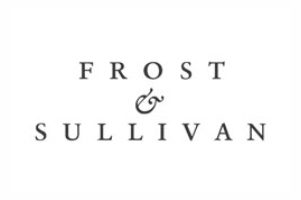Idioms from worry have will been key to these emic/etic answers to bolstering health-related interaction and measurement
She identifies one to biomedical therapists commonly understand hanoin barak (considering too-much) just like the reaction to traumatic situations, particularly the new 1999 Passabe massacre
Such as for instance, Miller and you can associates (2006) used “quick ethnography” to develop the brand new Afghan Danger sign Record (ASCL), hence received on idioms regarding distress and additionally “convinced a lot of.” Rasmussen and acquaintances (2014) Women’s Choice dating app next opposed the new in your neighborhood-build ASCL toward Self-Revealing Survey (SRQ-20). It learned that the newest SRQ-20 don’t simply take aggression and you may dysphoria, areas of intellectual worry that were like locally outstanding. Additionally, salience of one’s measures differed of the intercourse. And additionally emic steps close to founded mix-social tools thus offered a far more holistic, in your town outstanding method to evaluating stress. Likewise, Hinton and you may acquaintances (2012a, b, 2013, 2015) located “thought a lot” become a key website name out-of evaluation and you may medication certainly one of Cambodian refugees which means endorse incorporating new idiom into program tests and you may input.
Idioms out-of worry display incredibly to some extent because they mark to the common understandings from ethnopsychology, cultural record, and you may linguistic meaning solutions. Like, inside a study throughout the Southern Western ladies in The uk, the term “thought and you can considering” is practically always accompanied by sources so you can dil (one’s heart). That it idiom hence interacts this new position of the heart-head so you’re able to interrelated thoughts and feelings, distinguishing “considering and considering” regarding everyday view (Fenton & Sadiq-Sangster, 1996). , 2008). Most other article writers mean that “convinced a lot of” idioms linguistically show anything apart from typical, relaxed advice. Weiss (2005) relates to the term mawazo given that proving active, embodied imagine, with the same terms current into the Amharic, Haya, and you can Swahili (Mains, 2011; Weiss, 2005). Particularly linguistic and you can ethnopsychological benefit indicate that there is well worth in preserving idioms from distress into the health-related and societal health communications.
Most other degree away from Southern area Far eastern populations features also related “considering way too much” for the center-head, and therefore contrasts with intellectual-psychological process which might be mainly based various other regions of ethnophysiology (Desjarlais, 1992; Kohrt mais aussi al
Meanwhile, as “considering excess” idioms – like other idioms out-of distress – can also be express distress that’s non-pathological, they should never be delivered to imply a need for mental fitness treatment in every cases. Including, within her examination of pensando mucho (thought excessively) within the Nicaragua, Yarris (2014) found that the fresh new idiom communicates a certain ethical ambivalence about framework regarding switched public life. Yarris’s larger research (2011b) looked experiences from grandmothers taking care of the migrant d; youngsters. While on one hand appreciative out of economic remittances, grannies however struggled having one another chronic worry off d; security, including emotions regarding abandonment, judging the newest remittances are “morally insufficient and also make right up to have mothers’ absences” (Yarris, 2014, 481). Sooner, their experiences from “considering extreme” and its particular embodiment as the dolor de celebro (brainache) echo incapacity to reach moral ideals of unity and you can solidarity within the family. When you look at the an equivalent vein, Sakti’s (2013) study of “considering excess” from inside the Timor-Leste means that psychiatric intervention would be insufficient. not, inside her ethnographic analysis, she finds out you to “thought too much” is inspired maybe not by the individual traumatic situations however, from the disturbance out of regular avenues of interaction and you can reconciliation certainly closely associated kin communities, and therefore produces constant societal rupture. In this instance, personal treatments advised of the ethnographic context would be more winning than simply personal psychiatric therapy intended for PTSD. Like many anthropological degree out-of idioms off distress, Yarris and you can Sakti’s lengthened examinations from “convinced a lot of” for the socio-social and governmental position let you know the fresh larger relevance which is getting conveyed, yet , is actually possibly missed, invalidated, if you don’t rooked through the adoption from narrower psychological translation and you may impulse. Data out of “thought continuously” idioms is therefore will still be accessible to the possibility that it discuss non-pathological distress – plus cumulative social stress otherwise symbolic protest (Abramowitz, 2010; De- Jong & Reis, 2010; Nichter, 2010; Pedersen ainsi que al., 2010) – who highly recommend a need for personal, governmental, and you will financial change much more than just psychological input.


